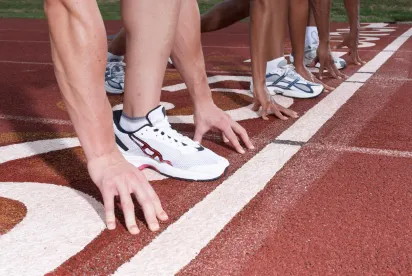In a decision issued December 5, 2016, the Seventh Circuit ruled that Division I student athletes are not entitled to minimum wage under the Fair Labor Standards Act (“FLSA”). (Berger, et al., v. National Collegiate Athletic Association, et al., No. 16-1558.) Former track and field athletes at the University of Pennsylvania (“UPenn”) initiated the case against UPenn, the National Collegiate Athletic Association (“NCAA”), and more than 120 Division I universities and colleges, arguing that they were entitled to minimum wage under the FLSA. The district court disagreed, and the Seventh Circuit upheld the district court’s ruling in a rather straightforward opinion.
“Simply put, student-athletic ‘play’ is not ‘work,’ at least as the term is used in the FLSA,” the Seventh Circuit held. Instead, the Seventh Circuit stated that student participation in collegiate athletics “is entirely voluntary,” and emphasized there was a long standing and revered tradition of amateurism in college sports which did not include any real expectation that student athletes should earn income.
Indeed, the Seventh Circuit refused to find any analogy between student athletes and private-sector interns and the multifactor test for paid interns established by the Second Circuit in Glatt v. Fox Searchlight Pictures, Inc. The Seventh Circuit also interpreted DOL guidelines regarding students who participate in work-study programs and those who participate in extracurricular activities, finding that NCAA-regulated sports are “extracurricular” in nature and therefore are not considered “work” under the FLSA.
This opinion effectively strikes down student athlete petitions for compensation under the FLSA in the Seventh Circuit, but perhaps leaves the question open in other Circuits that could utilize a rigid multi-factor test, such as the Second Circuit. It also presents an interesting question should the NCAA or other college-affiliated conferences decide to compensate student athletes in some form, which in turn could effectively alter the landscape of the long-standing tradition of amateurism.



 />i
/>i

